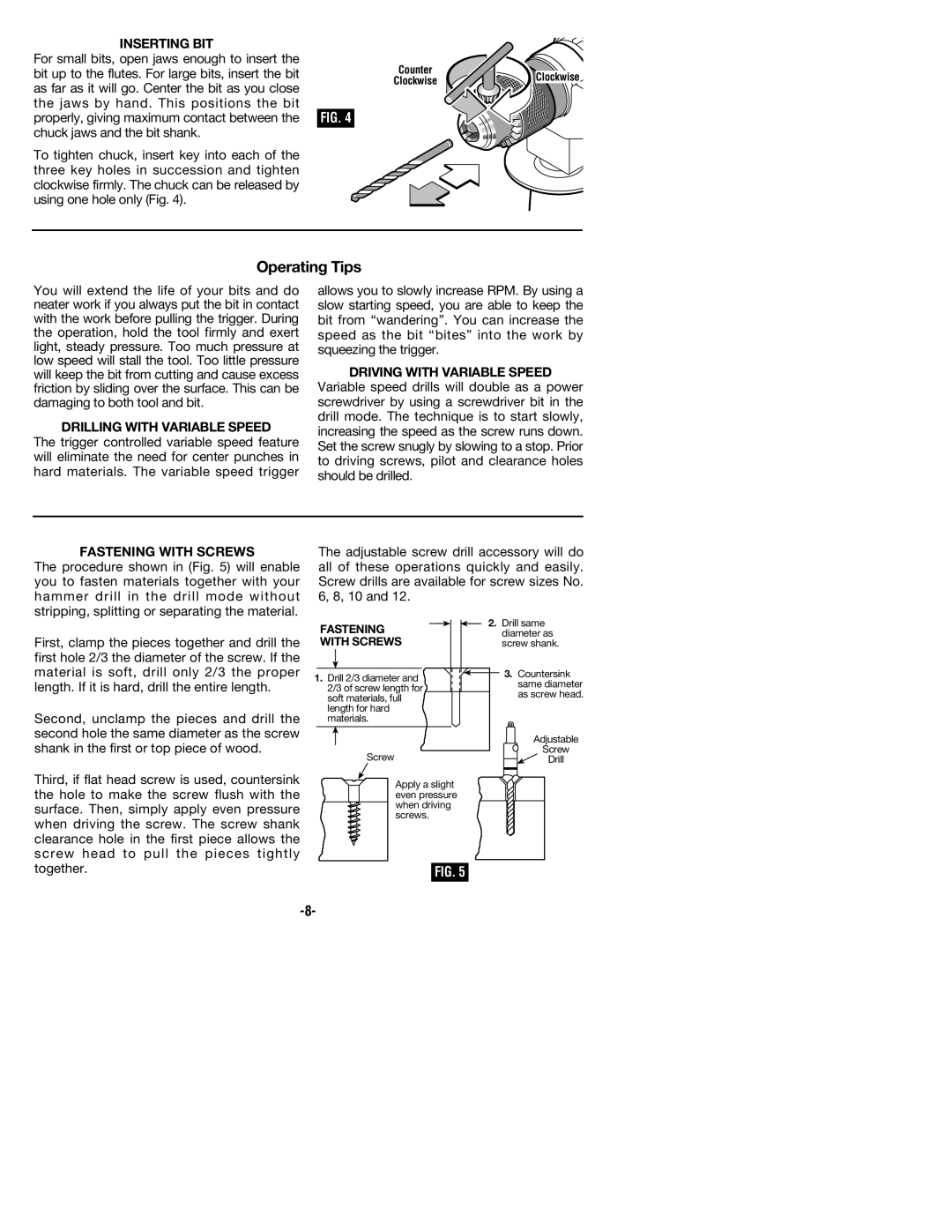
INSERTING BIT
For small bits, open jaws enough to insert the bit up to the flutes. For large bits, insert the bit as far as it will go. Center the bit as you close the jaws by hand. This positions the bit properly, giving maximum contact between the FIG. 4 chuck jaws and the bit shank.
To tighten chuck, insert key into each of the three key holes in succession and tighten clockwise firmly. The chuck can be released by using one hole only (Fig. 4).
Counter | Clockwise | |
Clockwise | ||
|
Operating Tips
You will extend the life of your bits and do neater work if you always put the bit in contact with the work before pulling the trigger. During the operation, hold the tool firmly and exert light, steady pressure. Too much pressure at low speed will stall the tool. Too little pressure will keep the bit from cutting and cause excess friction by sliding over the surface. This can be damaging to both tool and bit.
DRILLING WITH VARIABLE SPEED
The trigger controlled variable speed feature will eliminate the need for center punches in hard materials. The variable speed trigger
allows you to slowly increase RPM. By using a slow starting speed, you are able to keep the bit from “wandering”. You can increase the speed as the bit “bites” into the work by squeezing the trigger.
DRIVING WITH VARIABLE SPEED
Variable speed drills will double as a power screwdriver by using a screwdriver bit in the drill mode. The technique is to start slowly, increasing the speed as the screw runs down. Set the screw snugly by slowing to a stop. Prior to driving screws, pilot and clearance holes should be drilled.
FASTENING WITH SCREWS
The procedure shown in (Fig. 5) will enable you to fasten materials together with your hammer drill in the drill mode without stripping, splitting or separating the material.
The adjustable screw drill accessory will do all of these operations quickly and easily. Screw drills are available for screw sizes No. 6, 8, 10 and 12.
First, clamp the pieces together and drill the first hole 2/3 the diameter of the screw. If the material is soft, drill only 2/3 the proper length. If it is hard, drill the entire length.
Second, unclamp the pieces and drill the second hole the same diameter as the screw shank in the first or top piece of wood.
Third, if flat head screw is used, countersink the hole to make the screw flush with the surface. Then, simply apply even pressure when driving the screw. The screw shank clearance hole in the first piece allows the screw head to pull the pieces tightly
FASTENING
WITH SCREWS
1.Drill 2/3 diameter and 2/3 of screw length for soft materials, full length for hard materials.
Screw
Apply a slight even pressure when driving screws.
2. Drill same diameter as screw shank.
3. Countersink same diameter as screw head.
Adjustable
Screw
Drill
together.
FIG. 5
